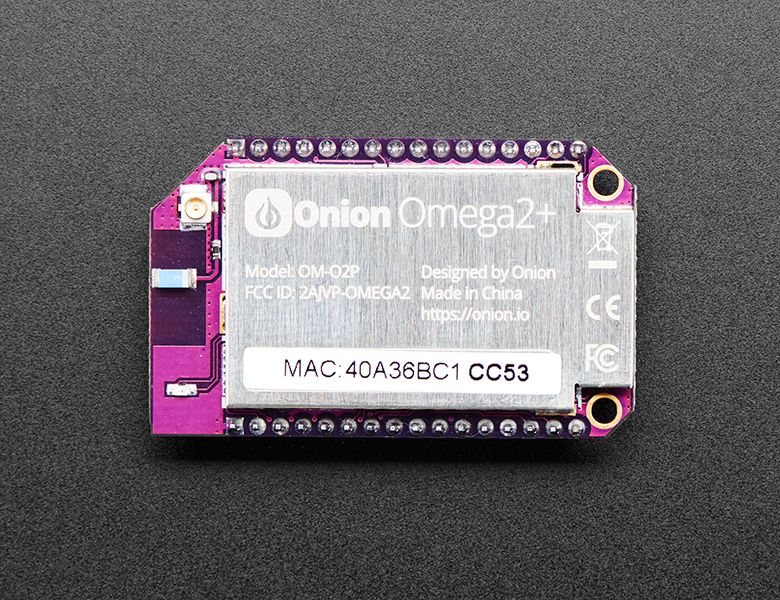
Onion Omega2+ by Onion Corporation
Ever wanted your own Linux-based IoT computer? A small one, that can be battery powered? The Onion Omega2 is sort of in-between a microcontroller (like an Arduino/CircuitPython/MakeCode running chip) and a full-fledged microcomputer (like Raspbery Pi). What you get is a bite-sized development board that combines the power-efficiency of the Arduino and the flexibility of the Raspberry Pi!
So, for example, it runs Linux, but isn’t going to replace your desktop computer. It’s low power and has a static filesystem, but still requires some time to boot up. It’s based on the MediaTek MT7688, a WiFi SoC that was initially designed for devices like WiFi routers or complex IoT devices. It comes with a variant of OpenWRT (nicknamed Onion OS) that is a slimmed down version of Linux. It’s not going to run node.js or minecraft but it is Linux. So, you get WiFi built in, and a full TCP/IP stack with SSL/TLS with all the scripting/programming language support that you expect.
Unlike a Raspberry Pi, you don’t get a desktop or even a console on HDMI. Instead, you use a serial connection/ssh and the command line, or the simplified webpage interface to program it. So it’s good if you have a bit of experience with those things!
Where it excels is as a physical computing platform, with hardware and WiFi. Wanna know how to blink an LED, or even multiple (!) LEDs? You can do that! You’ll be able to read switches and use shift registers. Blinking text? No problem! A 7-Segment display and an LCD screen are included! The Maker Kit even comes with relay, PWM/servo and OLED add-ons so you can have a display and robotics interfacing. Comes with all the fixins’ to get comfortable with IoT and programming languages, including Python, C++, Node js, php, Bash, Ruby, Perl, Lua, G, and more!
This maker kit has everything you need to fully build and prototype just about any kind of project you can think of with Onion Omega2+. Once you have your project or product well-developed you can then purchase individual Omega2’s and add-on boards from Onion.
Purchase
Contribute
Have some info to add for this board? Edit the source for this page here.
Adafruit Blinka Installation
We use a special library called adafruit_blinka (named after Blinka, the CircuitPython mascot) to provide the layer that translates the CircuitPython hardware API to whatever library the Linux board provides.
For example, on Raspberry Pi we use the python RPi.GPIO library. For any I2C interfacing we'll use ioctl messages to the /dev/i2c device. For SPI we'll use the spidev python library, etc. These details don't matter so much because they all happen underneath the adafruit_blinka layer.
